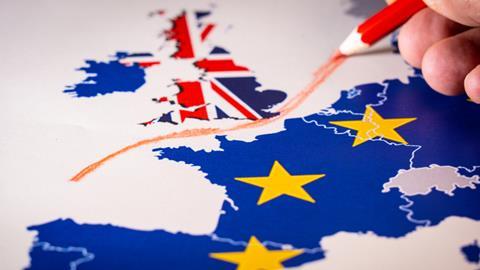The government has finally revealed the intended charging structure for certain imported goods from the EU to start later this month – and been accused of ignoring the industry’s opinions.
The common user charge will be introduced on 30 April for commercial movements of animal products, plants and plant products through the Port of Dover and Eurotunnel and applies to imports entering the country, as well as transits entering and leaving Great Britain.
The department for environment, food and rural affairs said the charges include £29 for loads of medium and high-risk products of animal origin, and £10 for products classified as low-risk.
Logistics UK said placing a cap on the maximum charge for any one consignment recognised the administrative complexity now facing groupage operators, but it added that the new charges would hit them and SMEs the hardest.
“Logistics businesses have been pressing the government for detail on the level of charges and how and when they will be implemented on imported goods since the Brexit vote,” said Nichola Mallon, Logistics UK’s head of trade.
“With only 27 days to go until these new checks and charges are to be applied, the cumulative cost facing businesses, and details of the compliance regime that will underpin it, are still not clear.
“These charges, as well as all the other inspection fees to be charged by the animal and plant health agency, port health authorities and local authorities and the charges that will be set at commercially-run border control posts, will need to be paid somewhere in the supply chain.
“Logistics businesses already run on extremely narrow margins and cannot simply absorb these additional costs, so it seems likely that they will have to be passed on to customers in the form of higher prices.”
Mallon added that despite hauliers making their feelings known to the government about the charges, their opinions had been overlooked:
“81% of businesses that responded to the government’s own consultation on its proposed charging structure at the border made it clear that these charges will have a fairly or extremely negative impact on their business,” she said.
“Today’s announcement makes it very clear that the government isn’t listening to those who make sure our shelves are stocked and at the lowest possible prices.
“As a sector we reiterate our call on the government to publish the modelling behind its assertion that the impact on food inflation will be 0.2% over three years: we believe the reality will be very different.”
The Cold Chain Federation (CCF) criticised the government for announcing the charge structure at the last minute and said it reinforced the “slapdash approach” it took to UK plc: “Our main concern is that this is now certain to negatively affect food prices,” said CCF chief executive Phil Pluck.
“The confirmation that common user charges will apply from the 30th of April means that UK importers of medium and high-risk goods will have to pass this cost on to either the EU importer, the smaller UK retailer, or the UK consumer.
“EU exporters are also shouldering the additional cost of health certificates, which may discourage many from exporting food and plant products to the UK in future.
“Ultimately, this will increase business costs and food prices and potentially lower choices for the shopper.”














